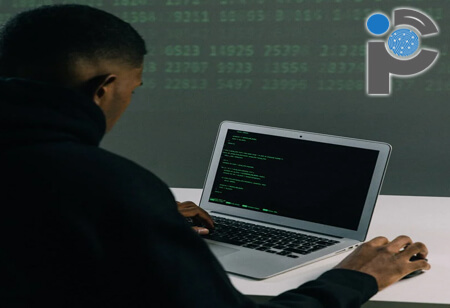What Private Investigators CANNOT Legally Do in the UK
May 24, 2021 - Reading time: 11 minutes
Updated on: August 27, 2025
Private investigators in the UK are bound by the same laws as everyone else, and a competent detective will never perform tasks which could be construed as breaking the law. With that said, there are sadly some rogue elements within every sector who may decide to play by their own rules. It’s important to note that if you intend to use evidence which is collected by a private investigator in court or for any official purpose, then you must ensure that the evidence was collected legally.
Are private investigators legal in the UK?
Yes - private investigators are legal in the UK. There are no laws that ban the profession, and anyone can set up as a PI without needing a licence. However, investigators must still follow the same laws as everyone else. That means they cannot hack, trespass, or break data protection rules, and any evidence they collect illegally would be inadmissible in court.
With that in mind, we have put together the following list of tasks which private investigators CANNOT legally perform in the United Kingdom:
Contents
1. Hack a phone, computer, website, or social media account
Hacking is against the law, full stop. And there is no exception to this for private investigators. We are often asked to help to hack into social media accounts, phones, computers, or websites for our clients.
Particularly in infidelity (cheating partner) investigations, our client may be keen to view messages which their partner has been exchanging with other people. As a responsible agency, we refuse all such requests and advise our client that the task they are asking us to perform is against the law.

We have been contacted by numerous individuals who have ordered “hacking services” over the years. Typically, after someone has paid for one of these services, the provider will take their money and do nothing. As the service itself is against the law, most people will not be willing or able to pursue action against the fraudster. We advise all of our clients to avoid such services and not be tempted to break the law in this way.
There are some exceptions to this rule, for example, if a company provides its employees with company owned laptops or phones, the company may choose to install monitoring software on those devices to keep tabs on how the devices are used by their staff. Software can also be used to monitor children’s use of the internet, where the parents purchased the device and retains ownership of it. Where monitoring software is used on a device, the end user must be aware that they are being monitored and consent to the collection of their data.
2. Go through people’s rubbish
Going through people’s rubbish can often reveal a surprising amount of information about them and their lifestyles. In addition, many people will not think twice before throwing away private documents such as bank statements or utility bills in their general waste without first shredding it. Information found in rubbish bins can not only prove useful to private investigators, but also to stalkers, fraudsters, and criminals.
The merits of going through a person’s rubbish are not often disputed, however, the legality surrounding this task is not as cut and dry as you might think.
If you have a wheelie bin filled with rubbish in your garden, then no-one should be going through it and taking any items away from your private property. When refuse is disposed of in a communal bin (at a block of flats, for example), then the legality of going through that waste and removing items can vary depending on how you (and your legal advisors) interpret the law.
If a private investigator (or anyone) enters your land/property without your permission, this may be considered trespassing, which is a civil matter. If your rubbish is stored outside the boundary of your property, such as in a communal area or on the side of a road, then establishing wrongdoing can prove more difficult in these cases.
3. Break the speed limit
In spite of what Hollywood might have you believe, private investigators are not permitted to break the speed limits or drive dangerously. Any investigator worth their salt will break off a surveillance assignment if the subject vehicle begins driving dangerously or speeding.

Private investigators have an ethical obligation to the welfare of themselves, the subject of their investigation, and to members of the general public. Breaking speed limits is a definite no-no for private investigators working in the UK.
4. Take photographs on private property
Private investigators are free to take photographs in any public space, just as all members of the British public are. In practice, this means that private investigators are able to photograph you on the street, or in public areas. Private investigators can also take photographs of your private property from public areas. There is only wrongdoing when a detective takes photos of your private property whilst on your private property.
A private investigator would technically need permission to take photos while standing on your private property, or anyone else’s private property.
5. Fit a tracker to your car
As a leading detective agency based in the UK, we use GPS tracking devices to track vehicles on a day-to-day basis. However, tracking devices can only be used under certain circumstances. Private investigators are not allowed to trespass onto your property in order to fit tracking devices, for example.
![]()
6. Install bugging devices in your home
One task that private investigators often perform is installing hidden microphones inside properties in order to record conversations and listen in to what is being said. Bugging devices can be used with permission of the property owner; generally speaking, if you need us to install a bugging device in your property, that’s fine. Private investigators are not able to fit bugging devices where they are not wanted or without permission from the property owner.
Our agency has seen numerous examples where hidden microphones have been installed by other private investigators, police, or members of the public. As part of our bug sweeping services, we can search for and locate these devices, and our likelihood of locating bugs during bug sweeps has actually increased in recent years, as these devices become more advanced and widely available for purchase through the internet.
If you suspect that a private investigator, or anyone, might be watching you, then we would recommend that you consider the possibility of adversaries using bugging devices to spy on you.
7. Access confidential records such as bank statements
As private investigators, we are often tasked with locating people through the searching of public records, or running criminal record/litigation checks for our clients. Whilst private investigators are allowed to use publicly available records to assist during investigations, they are not allowed to access private records such as a subject’s bank statements or other confidential records.

When a client asks whether we can help to access private bank account records, we are obliged to refuse and advise them that this information is private and that they have no right to access it.
More private investigator resources
If you enjoyed this article, then check out our other investigation related articles:
You are reading the PrivateInvestigators-UK blog — home to the UK's leading detective agency. Learn more about us by visiting our homepage PrivateInvestigators-UK.com.